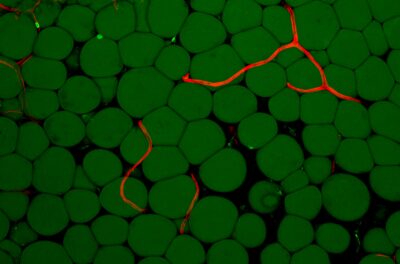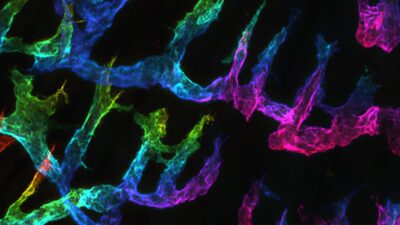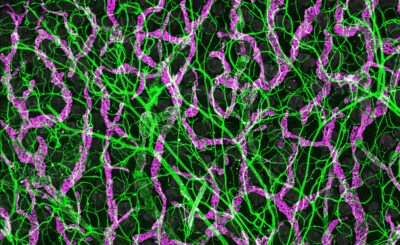Translational research at the Wihuri Research Institute focuses on the vascular system and its associated pathologies
Since 2013, the Wihuri Research Institute (WRI) has applied functional genomics, vascular biology and growth factor technology to translational studies of human diseases, particularly those in which blood or lymphatic vasculature plays a central role.
In parallel, WRI conducts basic research on the cellular and molecular mechanisms that regulate the normal development, physiology and pathology of these vascular systems. Recently, WRI has strengthened its position as a leading center for lymphatic vessel research, a rapidly expanding field in physiology and pathology.
Through collaboration with a strong network of expert partners, WRI has developed advanced mouse models, gene transfer techniques, molecular and cellular analysis methods, and expertise in bioinformatics for gene expression and advanced imaging analysis. By bridging findings from mouse disease models with clinical material, supported by close collaboration with the University of Helsinki and Helsinki University Hospital, WRI is paving the way for groundbreaking discoveries at the forefront of cardiovascular research.
WRI has made significant contributions to cardiovascular and lymphatic vascular biology, particularly through the development of advanced genetic mouse models and unique technology platforms based on vascular growth factors. Building on its strong tradition on atherosclerosis research, WRI has developed a collaborative research program that integrates cardiovascular disease with developmental, regenerative, and inflammation biology to investigate mechanisms underlying common human diseases. Research at WRI explores the roles of blood and lymphatic vessels in various conditions, including cardiovascular diseases, atherosclerosis, obesity, diabetes, and vascular leakage of plasma in critical disease states such as shock syndrome. In addition, WRI investigates the role of exercise in skeletal muscle metabolism and the interplay between lymphatic vessels and the immune system.
To understand the etiology and pathogenesis of these diseases, our scientists investigate fundamental cellular and molecular mechanisms. The Institute continuously integrates advanced technologies that open up new avenues for scientific discovery.
With core support from the Wihuri Foundation, WRI fosters a creative and collaborative environment, ensuring efficient operations through the shared use of instruments and core facilities at the University of Helsinki with dedicated long-term personnel. Our research groups apply cutting-edge technologies, such as genome editing, single-cell RNA sequencing, spatial omics and stem cell/organoid cultures, which are expected to significantly advance our research goals in the coming years. By pushing the bounderies of visualizing biological processes – both in living animals and at single-cell level – using state-of-the-art microscopy, we uncover new fysiological and pathological phenomena.








